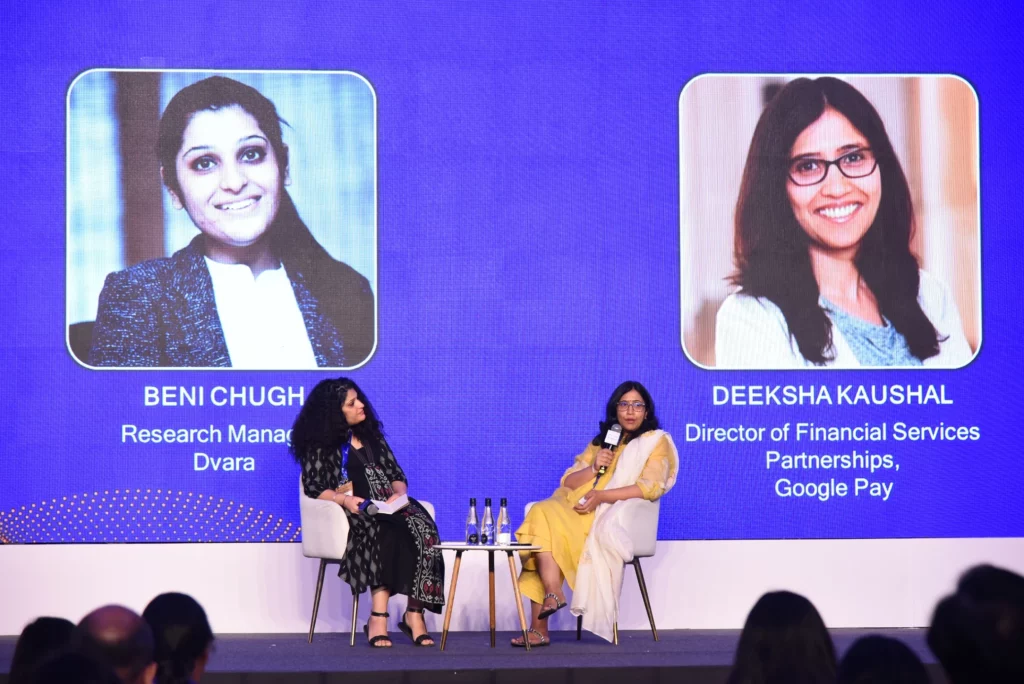Privacy Matters! At Population-scale
In this fireside chat, Deeksha Kaushal, Director of Financial Services–Partnerships at Google Pay, and Beni Chugh, Research Manager at the Future of Finance Initiative at Dvara, share insights on how privacy is protected and benefits people, especially those with limited income. Read this blog further to understand why privacy matters in India at the population scale!

Privacy has come a long way in India. From being a fabled right to an active consumer demand and an active regulatory obligation. People view privacy as their ability to control what they share and with whom. With the wide-scale uptake of digital channels for payments, commerce, and financial services, it is essential to ensure the safety of these interactions and the privacy of information. The industry should focus on fostering user control, transaction security, education, and accessibility to usher in data privacy and safety at the population scale in India.
- User Control: Privacy is vital in today’s world, where personal information is valuable. People want to have control over what they share with financial service providers. Users should be allowed to manage their data and privacy settings easily. This means users can make choices about their privacy and feel more confident in their decisions.
- Safeguarding Transactions: Privacy is not just about protecting data; it’s also about ensuring secure transactions. It is essential to take this seriously and put strong measures in place to keep transactions safe. Payment applications like GPay use PIN authentication for payments and send alerts when dealing with unfamiliar contacts to prevent fraud. When users make payments, their credit card information is kept safe using virtual account numbers. This commitment to transaction security helps users trust the interactions that they have.
- Education: Education plays a crucial role in raising awareness about privacy in the digital world. Payment applications built upon UPI have partnered with institutions like the National Payments Corporation of India (NPCI) and the Reserve Bank of India (RBI) to launch educational campaigns. These campaigns provide users with important knowledge about privacy, security, and safe practices when using digital finance. Giving users the right information makes them feel more confident and knowledgeable in digital finance.
- Accessibility: The digital finance industry should be accessible to everyone, no matter their economic background. It is imperative to proliferate this understanding throughout the digital financial services industry to make digital finance easier to understand and use while enhancing privacy features. At the same time, it is important to address language barriers to increase the uptake of these services. Initiatives such as offering different language options ensure everyone can access digital finance services.
Check out the complete conversation between Deeksha Kaushal, Director of Financial Services Partnerships, Google Pay, and Beni Chugh, Research Manager, Dvara, here:
We would like to thank Tanay Bhale for contributing to this blog.
Related Readings
